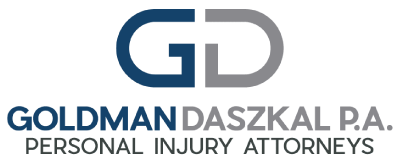People have a responsibility to look out for others. Whether that’s a grocery store cleaning up slippery spills as quickly as possible or a driver avoiding distractions while heading down the highway, duty of care is important in preventing accidents.
When an individual or a business overlooks their duty of care and you get injured as a result, you should talk to a personal injury attorney in Florida to see if they can help you secure compensation for your damages.
Duty of Care and Negligence
If you’ve already begun looking for information about personal injury lawsuits, you’ve probably come across the term “negligence.” In most personal injury cases, negligence is used to prove fault.
Duty of care is one of four elements that are used to evaluate negligence. Your personal injury attorney will need to show that each one was present in regards to your accident in order to recover compensation. Here’s how these elements work together:
- Duty of care. The at-fault party had some responsibility to warn you or protect you from harm.
- Breach. The responsible party breached that obligation of care for others and did not act as a reasonably prudent person would be expected to do in the same situation.
- Cause. The breach of the at-fault party’s duty of care was the direct cause of the victim’s injuries.
- Damages. The victim sustained physical or financial damages from the breach of the duty of care on behalf of the at-fault party.
These four terms might be difficult to grasp unless you’re in the legal field and working with these concepts daily. So let’s take a look at some examples of a breach of a duty of care and the role that this element plays in a personal injury lawsuit.
Duty of Care Examples
To give you a better concept of what a duty of care is and its role in a personal injury lawsuit, let’s look at two of the most common personal injury types.
Auto Accidents
When drivers get their license, they’re committing to following the laws and keeping other people safe. When they breach that commitment, they can be held responsible for their actions. Distracted driving, excessive speed, ignoring stop lights or stop signs, and following another car too closely are all examples of a breach of duty of care.
When a driver fails to maintain a safe distance between their car and your vehicle and they can’t stop in time, that rear-end accident is directly caused by the driver’s failure to exercise their duty of care. Even challenging road conditions like bumpy roads or rain are not generally the direct cause of a car accident—it’s usually a driver’s decision to drive too fast or recklessly given the road conditions.
Premises Liability
Let’s look at two distinct premises liability examples, one commercial and one residential. For the commercial example, slip and fall accidents are some of the most common premises liability cases. When a grocery store knows about a spill but doesn’t clean it up in a timely manner, or warn you about its existence they’re breaching their duty of care. If you slip and fall on that spill, the grocery store can be held responsible.
From a residential perspective, homeowners who invite guests into their home knowing that there are hazards in the home could be held liable for injuries sustained on their property. If a homeowner has a deck party even though they know the deck is in disrepair and someone gets hurt, that homeowner could face a personal injury lawsuit.
How a Florida Personal Injury Attorney Proves Duty of Care
For you to win a personal injury lawsuit, you must prove that the accident wasn’t some sort of unpreventable fluke. After all, accidents in which no party is responsible happen every day. A personal injury case claims that there is someone to blame, and that if they had acted as any other person who had the same duty of care would have, you wouldn’t have been injured.
You as the injured party have the burden to prove that the Defendant (the person or entity you’re suing) owed you a duty of care, breached that duty, and that breach led to your injuries. That’s where involving a Florida personal injury attorney quickly after an accident is helpful: he or she can begin collecting evidence immediately, giving you a better chance of recovering damages.
For there to simply be hazards in a location where you are hurt is not enough. You must sustain an injury or damages to be able to win a personal injury case. However, we encourage you to contact a personal injury attorney regardless of whether you believe you have a valid case. It never hurts to explore your options!
The Florida attorneys of Goldman & Daszkal will fight for you in and out of court. Ideally, your case will be settled outside of the courtroom to shorten the legal proceedings and avoid court fees—but if we need to take your case to trial in order to see justice served, we won’t hesitate. Schedule a free consultation to discuss your Florida personal injury case today.
